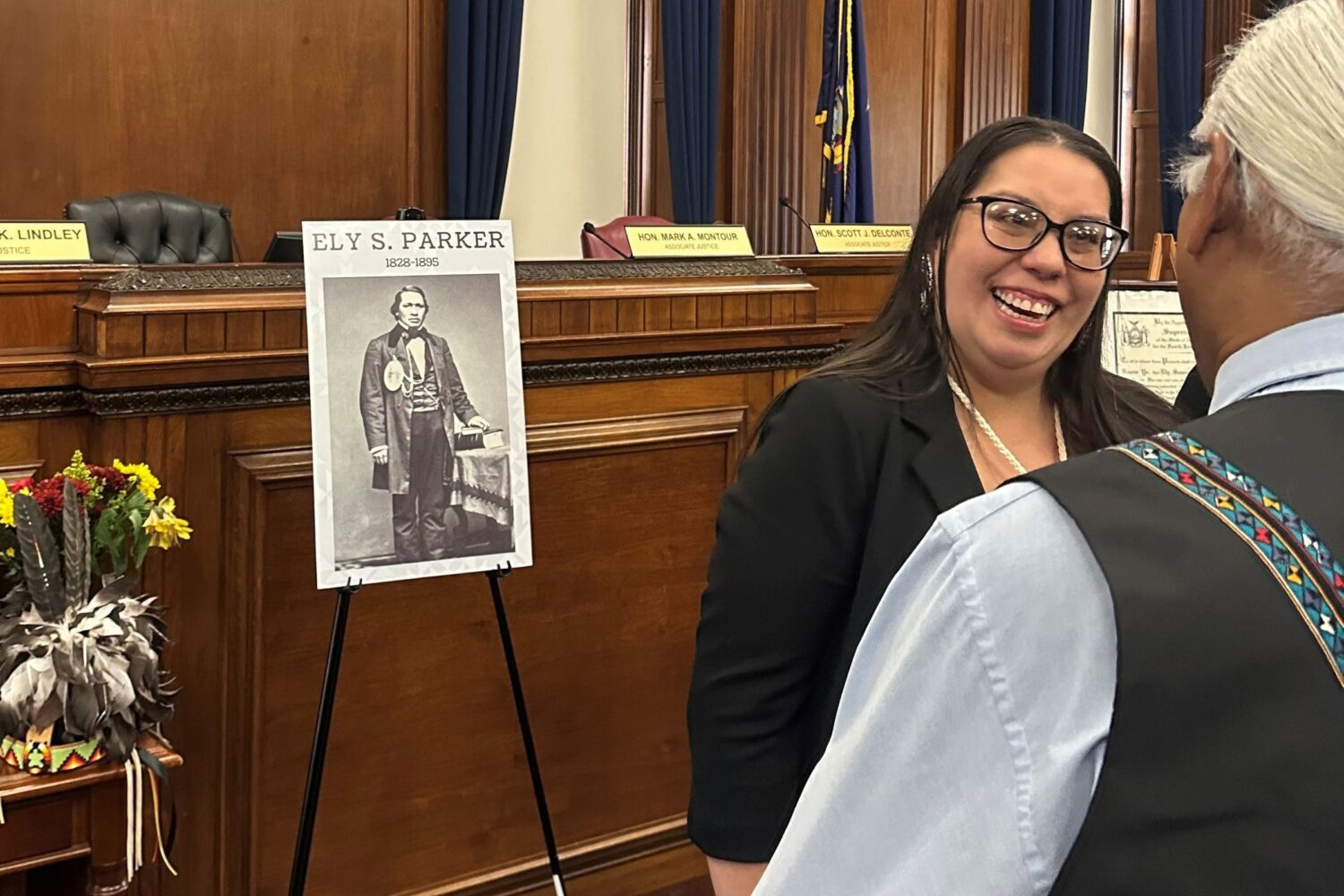
"was an affair between white men and one in which the Indian was not called on to act."
"Go home, cultivate your farm, and we will settle our own troubles among ourselves without any Indian aid,"
"The posthumous admission to the bar is fitting and deserving of a man who lived his life with integrity,"
"He didn't give up. He continued to fight for what he believed in."
Ely S. Parker, a Tonawanda Seneca from western New York, offered to enlist at the start of the Civil War but was rejected by Secretary of State William H. Seward, who told him the war "was an affair between white men and one in which the Indian was not called on to act." Seward also told Parker, "Go home, cultivate your farm, and we will settle our own troubles among ourselves without any Indian aid." Parker unsuccessfully petitioned Congress for US citizenship; Native Americans did not become citizens until 1924. Parker later received endorsement from Ulysses S. Grant, served as a top aide to Grant, and on Nov. 14 supporters and descendants gathered in Buffalo as the New York Supreme Court Appellate Division posthumously admitted him to the bar, 176 years after his original denial. The petition was filed on behalf of his great-great-great-grandniece, Melissa Parker Leonard.
Read at Madison365
Unable to calculate read time
Collection
[
|
...
]